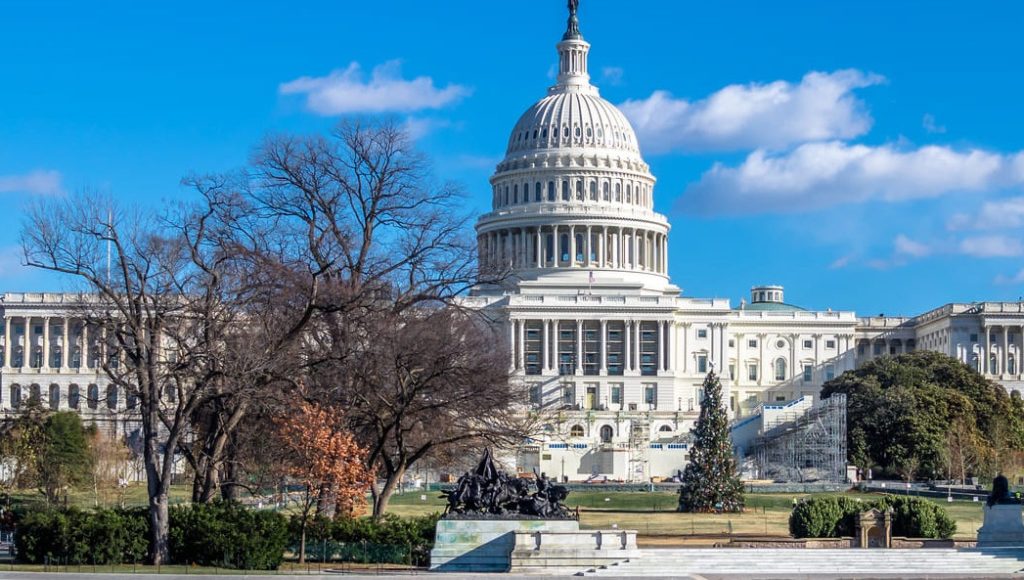
The Fee Is Free Unless You Win.
Top Rated Employment Law Firm
Protecting Families Since 1995
$450 Million Won
TABLE OF CONTENTS
Attorneys helping clients with Extraterritorial Applications of Title VII
In 1991, the United Supreme Court ruled that the protections of Title VII did not apply to Americans whose primary workstation was outside the United States. Following this ruling, Congress amended a number of employment discrimination laws to protect Americans in other countries. Today, numerous employment statutes are applied extraterritorially, including Title VII, the Americans with Disabilities Act, the Genetic Information Nondiscrimination Act, and the Age Discrimination in Employment Act. Notably, the Family Medical Leave Act does not apply to employees whose primary worksite locations are outside the United States.
When an employee works outside the United States a threshold inquiry is whether his “primary workstation” falls inside or outside the United States. If the primary workstation is within the United States, then the employee is entitled to the normal protection of employment statutes. If, however, the primary workstation is outside the United States, to show entitlement to the protection of an employment statute, the employee will have to show the extraterritorial application of such statute.
To determine whether an employee’s primary workstation falls inside the United States, courts will consider five non-exclusive factors:

While a court may consider additional factors in determining the location of the primary workstation, courts have held that the location of employment decisions concerning a plaintiff is not sufficient to locate a primary workstation in the United States. Thus, the fact that the person responsible for the alleged discriminatory action worked in the United States will have little, if any, bearing on the workstation inquiry.
If it is determined that an employee’s primary workstation falls outside the United States, to sustain a cause of action, the employee must establish extraterritorial application of the relevant statute. To show the extraterritorial application of Title VII, the FMLA, the ADA and the GINA, a plaintiff must establish two facts:
At its most basic, the employer test requires that plaintiff be employed by an American employer or by a foreign employer that is controlled by an American employer. When considering whether a foreign employer is controlled by an American employer, courts will consider:
If the statute applies extraterritorially then the plaintiff’s case will proceed as if the employee was located in the United States.
Discover how our expertise has helped clients overcome their legal challenges and achieve successful outcomes.
View All TestimonialsOlivia is the best! Oliva was very thorough, patient, and very detailed and descriptive regarding the process. She was very supportive of my sexual harassment case. From the very beginning, she communicated and would provide me with any updates and she was always available when I needed anything. More importantly, she always extended that comfort level of trust which always made me feel at peac... Read Full Testimonial
Casey Barkhordarian is a fabulous attorney to work with. He explained everything to me about the case (including the millions of questions I asked) right from the start of our very first meeting. He did so in a way that I could understand and was very prompt and clear with communication the entire time. Casey Barkhordarian is a very competent and knowledgeable lawyer to have on your team. I def... Read Full Testimonial
Matt Finkleberg is by far the best attorney I’ve ever hired! From the outset, it was evident that he was not just another lawyer; Matt is nothing short of extraordinary. He possesses the ability to do his job phenomenally while somehow managing to give me hope during one of my darkest of hours. Matt consistently returned my calls promptly, regardless of my questions, confusion, or self-doubt ... Read Full Testimonial
I cannot speak highly enough about my experience working with Matt Finkelberg. From the very beginning, Matt approached my case with an incredible level of professionalism, knowledge, and dedication that immediately put me at ease. It is rare to find an attorney who not only possesses an impressive depth of legal expertise but who also truly cares about the well-being and best interests of thei... Read Full Testimonial
Olivia is absolutely outstanding! She understands the emotional side of your case while being able to find the legal aspects of holding the employer accountable for breaking the law! Made a really terrible situation a little easier by explaining everything and helping me get everything in order and in the right hands. I would not use anyone else! Call them for any sexual harassment case... You ... Read Full Testimonial
This law firm is absolutely amazing!!! They went so above and beyond for me!!! I am so grateful for all their help with my difficult case!!! If you need a lawyer, you will be in great hands with their firm!!! And wait until you see the office! The building is so high tech I couldn't figure out how to get in the elevator lol!
It was a pleasure to have Casey represent and help me for my employment case. It was my first time needing an attorney, so I was a bit apprehensive at first – Casey took the time to answer all of my questions and fully explain everything to me, which really put me at ease. He was very attentive, supportive, and knowledgeable throughout the whole process – Casey would ask questions to ensure... Read Full Testimonial
matt is an excellent attorney. he handled my case with the utmost care and highly exceeded all expectations. i could not recommend derek smith and esp. matt finkelberg enough
matt is an excellent attorney. he handled my case with the utmost care and highly exceeded all expectations. i could not recommend derek smith and esp. matt finkelberg enough 🙂
Matt handled a suit against the City of LA and members of the a Neighborhood Council for racial discrimination and harassment. Ths was the first suit of this type filed on a Neighborhood Council Matt handled it with poise and above all professionalism. He walked me through the 3 year process and above all provided moral support and encouragement as I still experienced racism and harassment duri... Read Full Testimonial
Matt Finkelberg is Amazing and Devotional! It was a pleasure to have Matt represent me for my employment case. He was very attentive, supportive, and knowledgable throughout the whole process. Whenever I reached out he responded promptly which I greatly appreciated. Matt fought diligently and hard throughout my case to make sure my case was represented best. Thank you again Matt for everything.... Read Full Testimonial
It was a pleasure to have Casey represent and help me for my employment case. It was my first time needing an attorney, so I was a bit apprehensive at first – Casey took the time to answer all of my questions and fully explain everything to me, which really put me at ease. He was very attentive, supportive, and knowledgeable throughout the whole process – Casey would ask questions to ensure... Read Full Testimonial
Our dedicated attorneys are ready to fight for your workplace rights and ensure justice!
Title VII of the Civil Rights Act of 1964 is the federal law covering discrimination against employees in the workplace. Most people do not know that this law protects not only employees in the United States but also an American employee working outside the United States for an American company or for a subsidiary that is controlled by an American Company.
For example, a woman working in Paris for an American Company (or subsidiary of) may sue that American Company in the United States for discrimination or sexual harassment. Of course, we always try and settle your case prior to having to start the lawsuit, but having the ability to sue in American Federal Court and subjecting the American company to liability for discrimination or sexual harassment that occurred abroad gives us substantial leverage when it comes to negotiations.
If we are unsuccessful at pre-suit negotiations, we could always start the lawsuit and litigate the case. Thus, you should not consider yourself limited to the laws of the country in which you are working. However, it is very important to speak to a lawyer knowledgeable in this area and you should call us now for a free consultation.
The DEREK SMITH LAW GROUP, PLLC handles many cases that involve extraterritorial application of United States discrimination laws.
For further information, We have offices in New York City, Philadelphia, New Jersey as well as in Maimi, Florida. In the United States, call 877-469-5297. To reach us online fill out the contact form at the top right of this page.

Our experienced legal team provides reliable services in key U.S. cities, ensuring expert assistance for workplace discrimination and employment law matters wherever you are located.
 New York City
New York City
 New Jersey
New Jersey
 Philadelphia
Philadelphia
 Miami
Miami
 Los Angeles
Los Angeles
 San Francisco
San Francisco
 San Diego
San Diego
 Washington DC
Washington DC